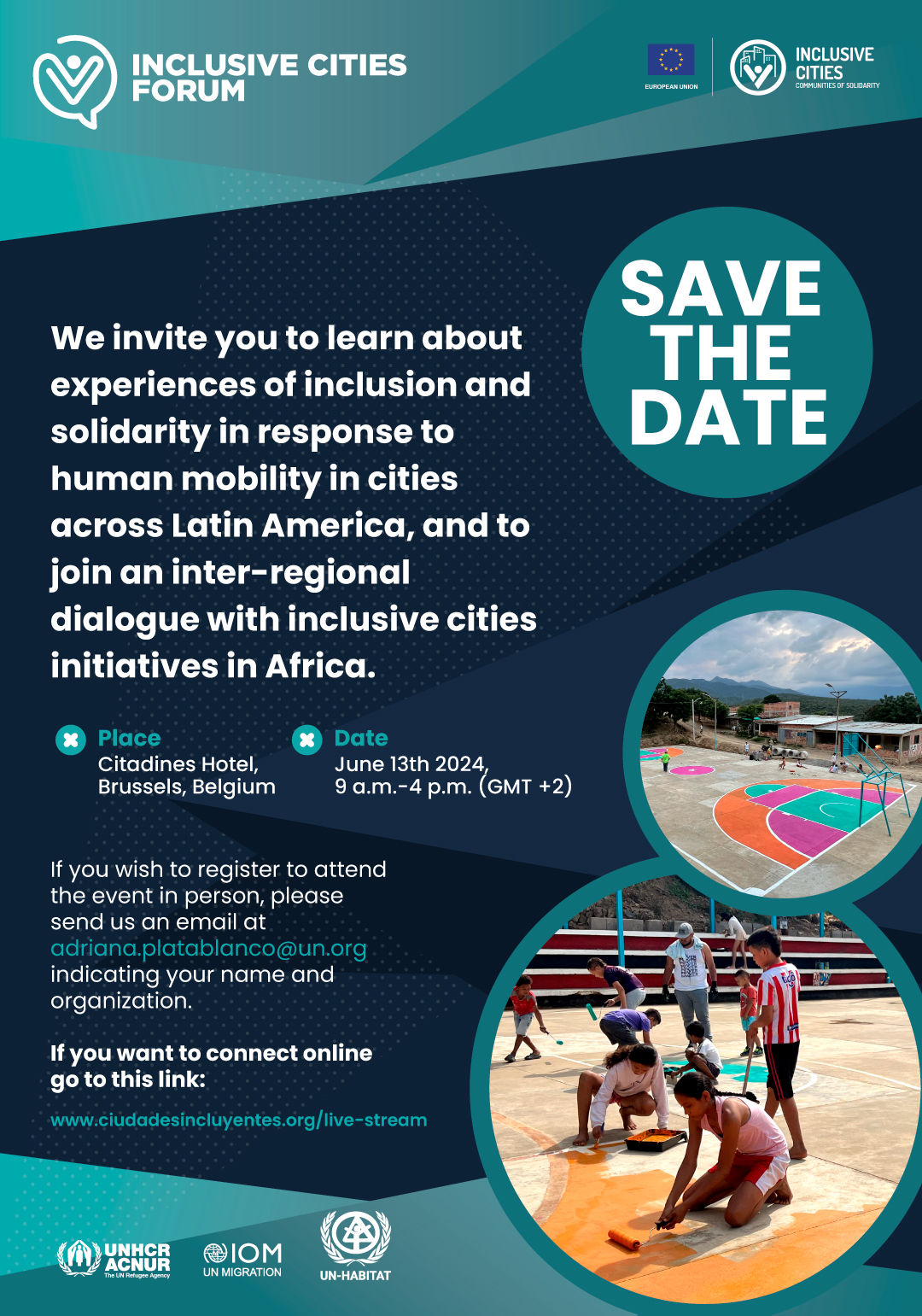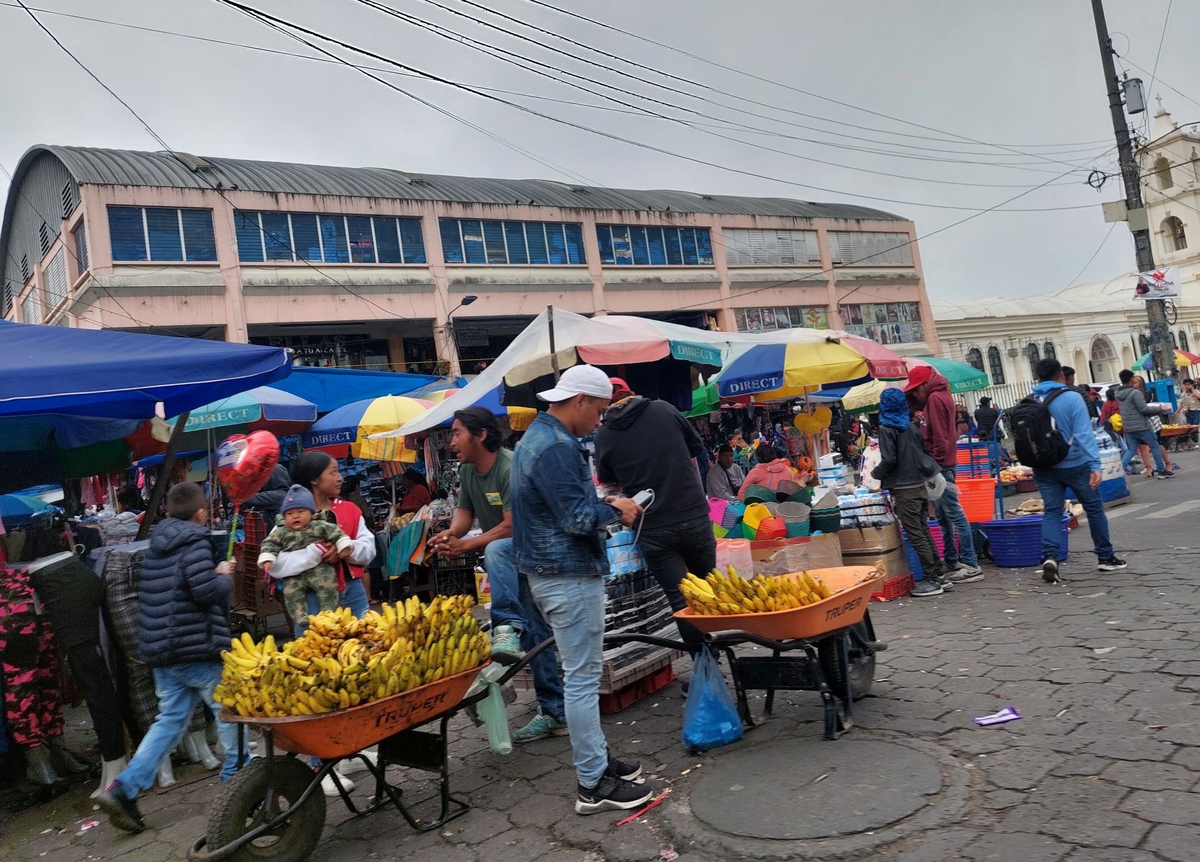- Who We Are
- How We Work
- Regional / Country Initiatives
- Legacy
- Core Themes
- Working Groups
- Portfolio & Results
- Newsroom
- Resources
ICCS Forum: Building Inclusive Cities and Solidarity Communities in Latin America and Africa


Cities Alliance participates at the ICCS Forum, an event co-organised by IOM, UN-Habitat, UNHCR, and the European Commission. The Forum aims to promote an international dialogue by sharing the experiences and lessons learned from the Inclusive Cities, Communities of Solidarity Project in Latin America. It also aims to identify how lessons learnt from this can be applied in other displacement settings, including in West and East Africa, and strengthen collaboration and alliances towards integration and inclusive local development in crisis situations.
As the global population is expected to reach 9.7 billion by 2050, the urban population will rise from 55 to 70 per cent, driven equally by natural growth and migration. Migration has always fuelled urbanization and will continue to do so, with the Global Compact for Safe, Orderly, and Regular Migration stressing access to basic services, social inclusion, and addressing root causes through sustainable development. Urban areas, where most refugees and internally displaced people seek refuge, require coordinated efforts to integrate their needs into planning, ensuring access to services and legal support.
Addressing urban displacement needs a multifaceted approach, recognizing the role of local authorities and communities, utilizing local data for informed policies, and combining humanitarian and development assistance. Effective urban responses can help displaced populations become self-reliant and positively impact the local economy, society, and culture.

Key discussions
The morning session will centre on the Inclusive Cities, Communities of Solidarity (ICCS) project in Latin America. This is a joint initiative of UNHCR, IOM, UN-Habitat and the European Commission that responds to the mass movement of refugees and migrants from Venezuela to surrounding countries, which had a significant impact on cities.
It addresses challenges of socio-economic integration in host cities, and vulnerabilities of Venezuelan refugees and migrants in Colombia, Ecuador, Peru, Dominican Republic, Panama and Trinidad and Tobago, by strengthening the response capacity of local authorities, civil society and communities.
The afternoon session centres on a policy dialogue. It brings together the ICCS city leaders with academics, policy makers and technical experts working in other regions, including East and West Africa, to share experiences and contribute to global discourse responding to forced displacement in cities:
Spatial Development Strategy for the Sahel (SDSS):This project identifies anticipatory actions in response to climate change and conflict-induced displacement in the Sahel. It maps population flows, territorial economy, and infrastructure, prioritizing investments to enhance safety, inclusivity, and resilience in human settlements. [Sweden, UN-Habitat, UNDP].
Out of camp or out of sight? Realigning responses to protracted displacement in an urban world: Led by the International Institute for Environment and Development, this project (2020-2024) evaluates urban versus camp responses to displacement in Ethiopia, Jordan, Kenya, and Afghanistan. It aims to provide evidence for policymakers, advocate for displaced people's rights, and promote self-reliance in urban settings through surveys, interviews, and forums. [UKRI, IKEA Foundation, SDC, Bernard Van Leer Foundation].
Addressing urban displacement in Burkina Faso through inclusive area-based approaches: Supports the integration of displaced people in four cities by building housing, services, and infrastructure, with an emphasis on community participation and local capacity-building. [UN-Habitat, European Commission].
Cities and Migration: This programme supports over 20 secondary cities in Tunisia, Ethiopia, Sudan, Somalia, Uganda, DRC, and Guatemala. It provides financial and technical assistance for improved local migration management and fosters partnerships among local, national, and global actors to address the informality of migration and displacement. [Cities Alliance, SDC, European Commission]
Agenda
- 09:30-10:15 Opening
- 10:15-10:40 Presentation Pathways to Effective Integration: Results and Impacts of the Inclusive Cities, Communities of Solidarity Project
- 11:00-12:30 Discussants Roundtable Latin-American voices for integration
- 12:30-13:00 Concluding Remarks Moving Forward: Perspectives on Urban Integration and Human Mobility in Latin America
- 14:00-15:30 Policy Roundtable Global policy exchange on inclusive cities and solidarity communities
- 15:30-16:00 Closure
Participate
- In-person: register via email to adriana.platablanco@un.org
- Online: https://ciudadesincluyentes.org/live-stream/




